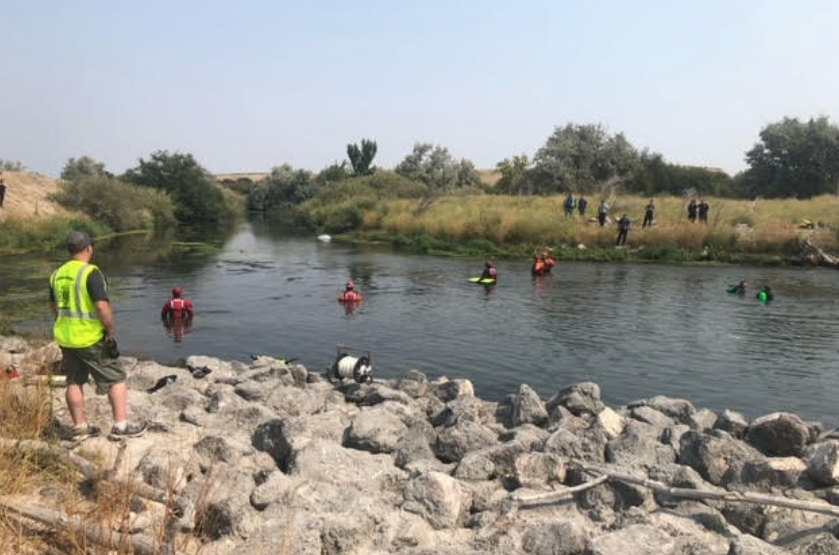
- Details
- By Native News Online Staff
FORT HALL INDIAN RESERVATION — The Shoshone-Bannock Tribes announced on Thursday an unidentified non-Native male drowned while fishing on the Fort Hall Indian Reservation near Fort Hall, Idaho
Fort Hall Fire and EMS were dispatched at 9:50 a.m. on Thursday morning to a bridge over the Portneuf River on Siphon Road for a reported drowning of an unidentified male. Upon arrival, rescuers found one man was out of the water and another man was missing. Both individuals have been identified as non-tribal.
The missing man was found downstream under river debris approximately three hours later.
According to the survivor, the men were fishing when the boat started to take in water. It was not clear what happened after that.
Identities of the male were not provided at the time of the report. No further information is available.
More Stories Like This
Native News Weekly (August 25, 2024): D.C. BriefsUS Presidents in Their Own Words Concerning American Indians
Native News Weekly (December 14, 2025): D.C. Briefs
Wounded Knee Massacre Site Protection Bill Passes Congress
Two Murdered on Colville Indian Reservation
Help us defend tribal sovereignty.
At Native News Online, our mission is rooted in telling the stories that strengthen sovereignty and uplift Indigenous voices — not just at year’s end, but every single day.
Because of your generosity last year, we were able to keep our reporters on the ground in tribal communities, at national gatherings and in the halls of Congress — covering the issues that matter most to Indian Country: sovereignty, culture, education, health and economic opportunity.
That support sustained us through a tough year in 2025. Now, as we look to the year ahead, we need your help right now to ensure warrior journalism remains strong — reporting that defends tribal sovereignty, amplifies Native truth, and holds power accountable.
 The stakes couldn't be higher. Your support keeps Native voices heard, Native stories told and Native sovereignty defended.
The stakes couldn't be higher. Your support keeps Native voices heard, Native stories told and Native sovereignty defended.
Stand with Warrior Journalism today.
Levi Rickert (Potawatomi), Editor & Publisher

